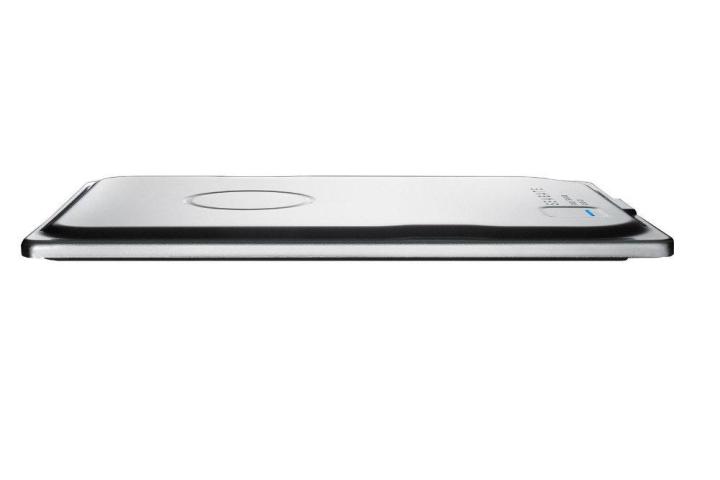
Physically, the 750 GB version is identical in both measurements and weight to the smaller capacity version. The Seagate Seven weighs just 178 grams, and is 122.5mm long by 82mm wide.
But focusing on its size doesn’t mean Seagate has skimped on the quality. The enclosure is built from stainless steel, protecting your precious data while maintaining the look and feel of a bare drive. In order to keep the size down, the steel layers are pressed on either side of the drive, and crimped at the edges for a slim, sturdy seal. The drive focuses a lot on looks, but there are some built-in features that provide serious added value as well.
Both versions of the Seagate Seven series are powered by the built-in USB 3.0 connection, and include a braided cable that runs power and data at the same time, making the drive even more portable. It also comes with the Seagate Dashboard installed right out of the box. The custom software will help you keep track of your data and back up your digital life on a regular basis.
The one major downside to the Seagate Seven is its speed. The drive averages just 101.2MBps read and 102.3 MBps write, as tested by Softpedia, which is low, even for an ultraportable USB drive.
If you want to make the jump to 750 gigabytes of compact storage, the Seagate Seven will run you around $130, which isn’t much more than the $99 the 500GB version retails for.
Editors' Recommendations
- WD My Book Live owners need to act now to protect their data
- Built on a fast SSD, LaCie’s computer-free backup drive just got much better


